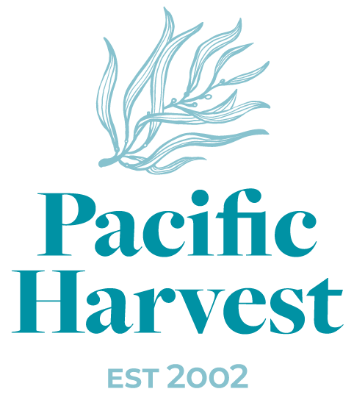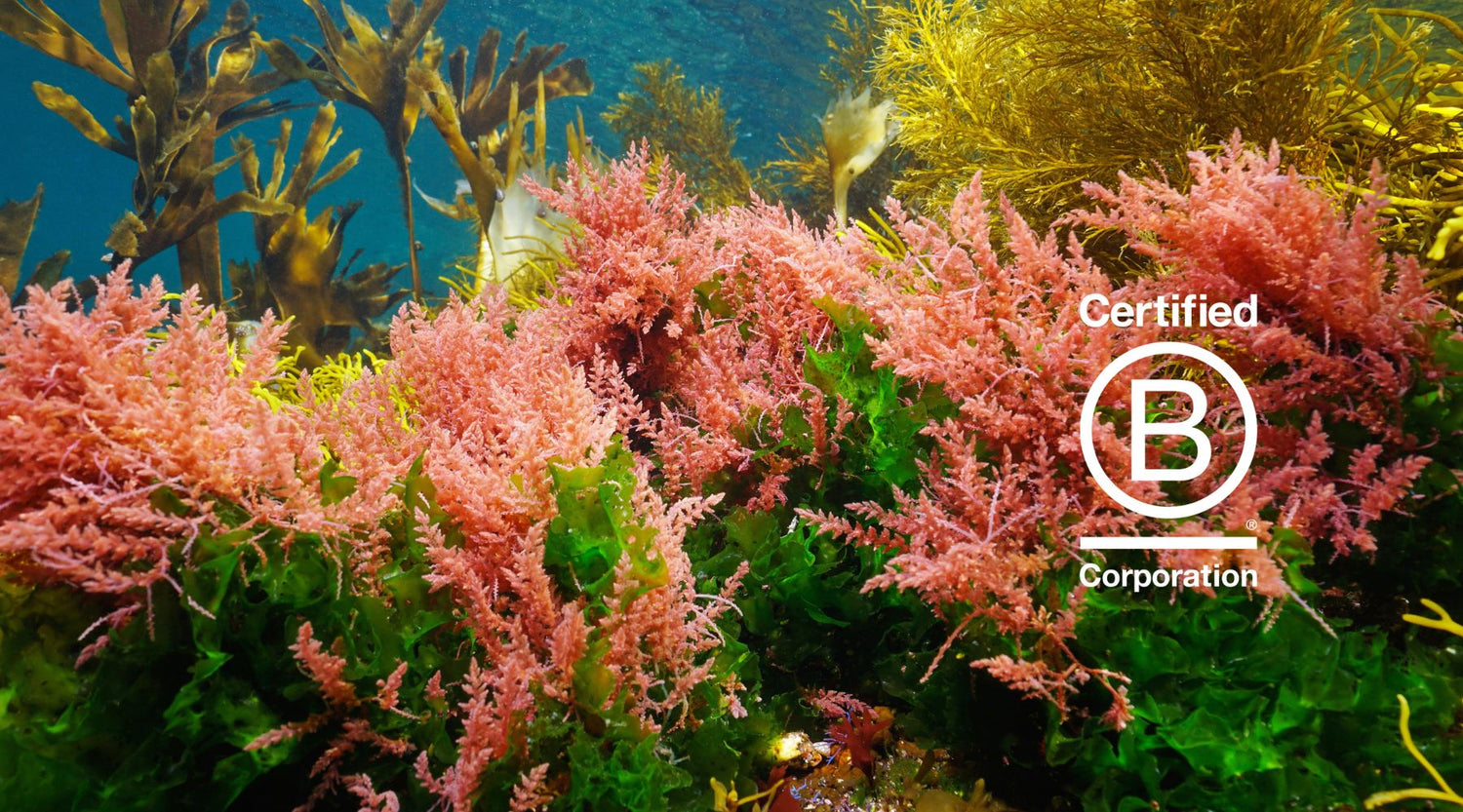It’s easy to feel depressed by the seemingly unstoppable degradation of our planet, but seaweed represents hope for healing and repair in many ways. The food we’ve grown to feed ourselves (and the animals we eat) has exacted a heavy environmental toll. Our planet is crying out for help, and we simply must reduce our ‘foodprint’ – the carbon footprint we create through our food choices.
Did you know roughly a third of all human-caused greenhouse gas emissions are linked to food that we eat or which we grow to feed animals we eat? Read why the potential of seaweed is a reason to feel hopeful we can heal our planet and how we can reduce our ‘foodprint’.
Why do we need urgent change?
Carbon dioxide levels continue to climb, oceans become more polluted, acidified and depleted, and arid regions expand while some island nations vanish under water as ocean levels rise.
Why is seaweed so exciting from a human nutrition perspective?
Our soils are depleted. The minerals and nutrients we need for optimal health are no longer present in the dirt, so we won’t get what we need if we eat foods grown in these soils. We urgently need to embrace foods that don’t contribute to our planet's destruction and offer a far better nutrient density for overall well-being.
Seaweeds are packed with vitamins and minerals for all.
Why is seaweed so exciting from a planet health perspective?
Seaweed is fundamental to the health and natural balance of our oceans. Seaweeds help in multiple ways to remediate the oceans we rely on and clean the waters we have polluted.
Seaweeds are found at all depths where the light can reach as they all photosynthesise for their survival. Using the sun’s energy to produce food, they provide an essential food source, habitat, and shelter for the survival of the tiny ocean creatures at the base of the ocean’s food chain.
Co2 emissions from human and animal activities collect in the atmosphere and warm the planet. Nutrient-rich algae are constantly working to absorb (up to 5x more) carbon than most land-based plants can, drawing it from the atmosphere, counteracting acidification in the water and cooling the temperature of the world’s oceans and seas, all whilst releasing precious oxygen into our atmosphere.
If we consider that oceans cover 70% of our planet, it is easier to appreciate the volume of algal biomass available to create oxygen for our world and absorb the excess carbon dioxide we emit. It’s reported that 70-80% of the oxygen we enjoy on earth is produced by seaweed!
Co2 in the ocean makes it more acidic, devastatingly impacting corals, fish and other marine life. The work seaweeds constantly perform is a critical piece of the puzzle to deacidifying our oceans.
Seaweed is ‘better food’ and heals, not harms our planet.
Years of irresponsible land farming practices have taken nutrients from the soil and polluted the land with toxic chemicals. Agriculture has become vulnerable to increased incidences of forest fires, flooding and destructive storms…and we are simply running out of arable land to grow food on. Much has been written about the impact of climate change on agriculture - finding new food choices that heal our planet has become urgent.
Growing animals for food is an inefficient way of nourishing people – large animals eat many times the plant protein than they ultimately yield in meat. We continue to overfish our oceans, causing these populations also to be threatened. Better food sways beneath the surface of the world’s oceans and clings to our rocky coastlines - seaweed!
Growing seaweed to eat generates far less impact on our planet than other types of food, and our earth benefits from seaweed growth. Seaweed requires no additional water. It requires no toxic or chemical fertilisers – it will draw from the abundant nutrients available in the ocean, many of which are no longer found in soils. It’s said that some seaweed species can grow 20x faster than land plants. Our ability to harness this natural power using respectful regenerative practices provides undeniably exciting potential for human and planet health.
Seaweed can heal many of the other problems we have created…
There are countless examples of how seaweeds are now being used to help mitigate some of the problems we have created.
The United Nations reports that the most significant percentage of food-related greenhouse gases comes from agriculture and land use. A substantial contributor is the methane produced due to cattle’s digestive process. An exciting realisation in recent years is that the metabolites found in seaweed disrupt the methane-producing enzymes found in the stomach of cattle. So, if beef and cattle farmers supplement their livestock feed with seaweed rather than a diet of solely grass and grain, bovine methane emissions can be significantly reduced.
And while wind, solar and hydropower are leading the charge on renewable energy, seaweeds are also being transformed into biofuels as a more sustainable energy source. Bioplastics are in development, and we are hopeful that bio-degradable plastics will dissolve back into the ocean, causing no planetary harm.
So what can we do personally to reduce our ‘foodprint’?
As with many things, the answer lies in one significant change and a series of small adjustments to clean up the damage already caused. Protecting our oceans and bringing attention to the critical role seaweed plays in the sea is a crucial part of this.
We can also make incremental changes in our choices about the food we eat. Here are some ideas on how to reduce our “foodprint”:
- Reduce consumption of meat and dairy products. These industries cause excessive emissions. Did you know the average emissions from plant-based foods are 10-50 times less than those from animal products? Add those land and sea vegetables to your plates! Choose foods that heal and nourish our planet….like seaweeds! Always ensure seaweeds have been sustainably farmed or regeneratively harvested to protect the delicate balance in the ocean.
- Seek foods with minimal packaging, or those packed in biodegradable or fully recyclable packaging.
- Eat more raw, whole foods, ideally locally produced. Processed foods, which have travelled further, have more carbon emissions attached to them due to the energy required to produce them.
- Reduce waste! Get creative in the kitchen with what you have in your pantry. Plan your meals for a week to reduce unnecessary purchases and wastage. Start a worm farm or bokashi bin to create circular solutions for your food waste.
Our blue oceans are becoming a green source of sustainable fuel and tasty food for our future. Pacific Harvest is committed to producing sustainable, planet friendly food and our B Corp certification is testament to this commitment.
Let’s protect nature’s gifts to us and our planet.







